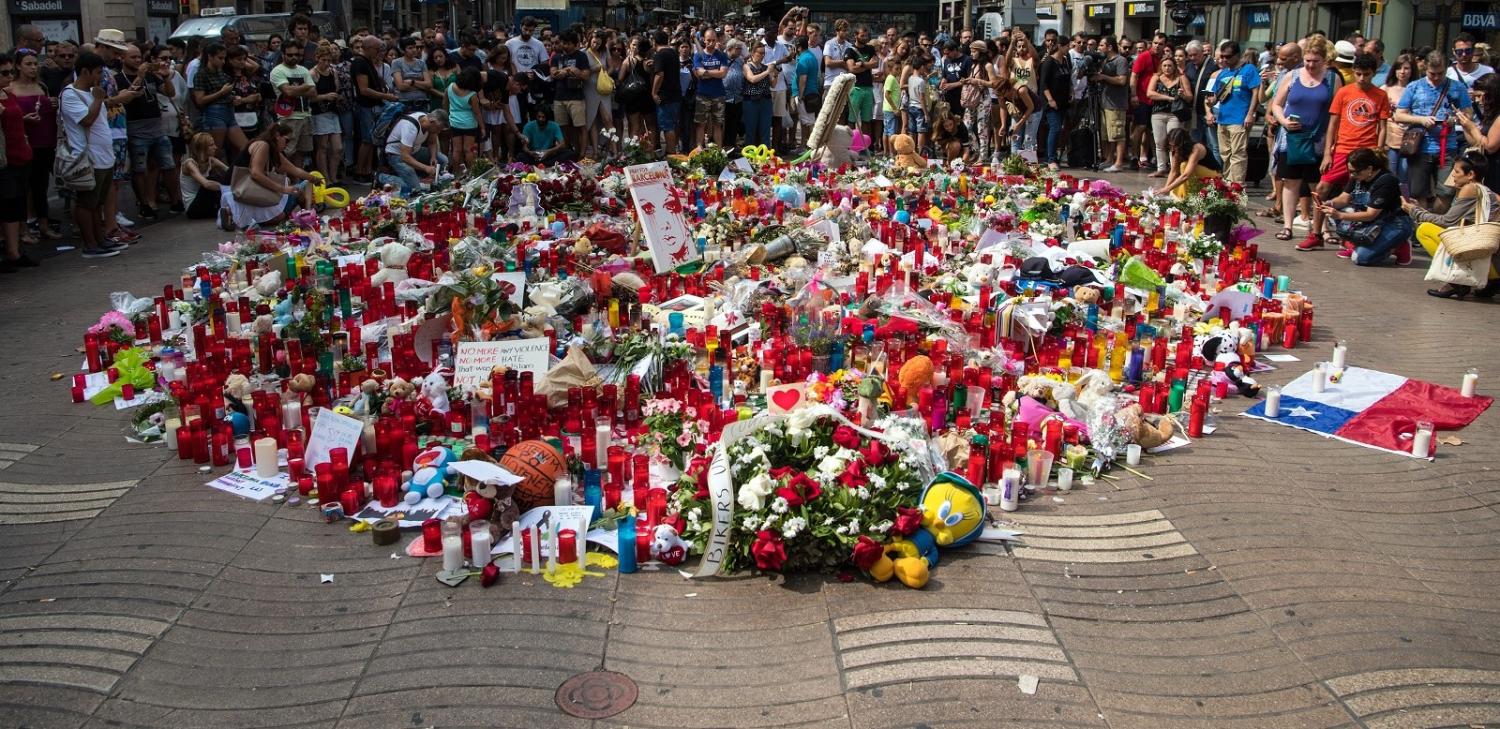On Sunday, 14 August Islamist militants attacked a Turkish restaurant In Burkina Faso's capital killing 18 people, including two Canadians, and citizens of France, Lebanon and Kuwait, among others.
On Thursday and Friday, the Spanish police reacted to an IS-linked terrorist cell who attacked two targets in that country. Five members of the group were shot dead by police, two appear to have accidentally blown themselves up when a bomb detonated early, also destroying a building, four suspects are in custody, and one is on the run.
On Friday in Turku, in southwestern Finland, a Moroccan asylum seeker stabbed two women to death and wounded eight others in what police described as a terrorist attack
On Sunday, Australian authorities charged three men with an IS-inspired arson attack against a Shi’a place of worship.
At the time of writing, it is not believed any of these incidents or attacks are linked. However, while it is always of limited value to look at a snapshot and draw broad conclusions, it is nevertheless worth making some observations about the continuing trends in terrorism that this week has reaffirmed.
- The events in Barcelona reiterated the fact that the threat to Australians from Islamist terrorism is not confined to our shores. Australians and Westerners in general are potentially at risk anywhere where foreigners gather. Besides Barcelona, Australians have been casualties in attacks in places as diverse as Nairobi, Riyadh, Tunis, London, Mumbai, Baghdad, New York, Bali and Jakarta.
- There is no such thing as 100% success. In the coming weeks the Spanish authorities will no doubt review their procedures and determine the source of the intelligence gaps that allowed the terrorist cell to conduct a successful attack. Until last week, Spain hadn't had a successful Islamist terrorist attack since 2004, but that doesn't mean there has been no threat for the Spanish authorities to address. Between 2013 and 2016, there were 178 arrests of jihadists in Spain and its territories for terrorism offences. That would indicate the Spanish authorities have been proactive in addressing the threat but still last week's plot went undetected. This is yet another example of why using the number of people killed as the metric for how dangerous a threat is lacks intellectual rigour because it doesn’t acknowledge arrests and interdictions.
- The Finnish attack was further evidence (if any were needed) that steering clear of anti-jihadist military coalitions is not a way to avoid being targeted by the same. Countries such as Indonesia, the Philippines and Finland aren’t involved in the coalition against IS in Syria and Iraq yet they have all been targeted by IS-linked groups, while the security services of other countries have also disrupted plots or arrested recruiters or facilitators operating on their soil. The reality is that Westerners in general remain a target, as do Shi’a and Sunni governments whom Salafists believe are constraining their activities.
- Attacks against the West get more media than attacks in the third world. It is reasonable to assert that few Australians would have been aware of the deadly Burkina Faso attack - most likely carried out by Al-Qa’ida in the Islamic Maghreb (AQIM) - and Canadians only because of the cost they have borne. Terrorists understand this and will continue to try to penetrate Western countries’ defences and to target locations frequented by Westerners in non-Western countries. In order for groups to maintain relevance, they need to project a vision of themselves as active jihadis – attacks against Western targets help achieve this aim.
- Religion is central to the Salafist-jihadist identity. Forget isolated instances of the so-called jihadi ‘adventurers’ or ‘redemption through fighting’ - the vast majority of jihadis have a very strong Islamic religious identity at their core, regardless of how much they may know the dogma associated with it. It appears that the key figure in the Barcelona attack was a local imam (who may or may not have died in the bomb factory blast). Central to the Salafist mindset is a studied intolerance – within Islam for what they see as bida’, or impermissible innovations in practice, and externally for other religions. The charges over the arson attack against a Shi’a place of worship in Australia are a localised example of the former mindset, as was the case with Kutobi and Kiad, two Sydney-based terrorists now doing lengthy jail terms who had also planned to firebomb a Shi’a (although it may have been ‘Alawi) place of worship in western Sydney. The intolerance for other religions is exemplified by reports the Barcelona attackers may have targeted worshippers and tourists at Barcelona’s iconic cathedral. The 15th issue of the IS magazine Dabiq was entitled ‘Break the Cross’ and was dedicated to anti-Christian stories, and churches have been targets for attacks in France, West Africa and the Middle East.
